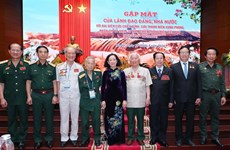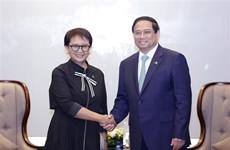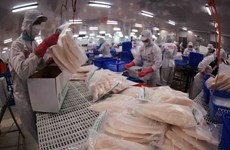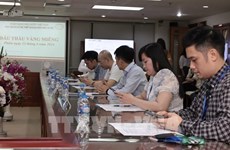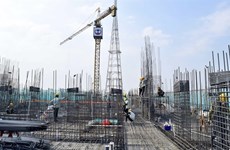Vietnam Railways estimates 60 million USD loss due to COVID-19
The Vietnam Railway Corporation (VNR) estimates a loss of nearly 1.4 trillion VND (60 million USD) after tax in 2020, a massive blow to the company due to impacts of the COVID-19 pandemic.
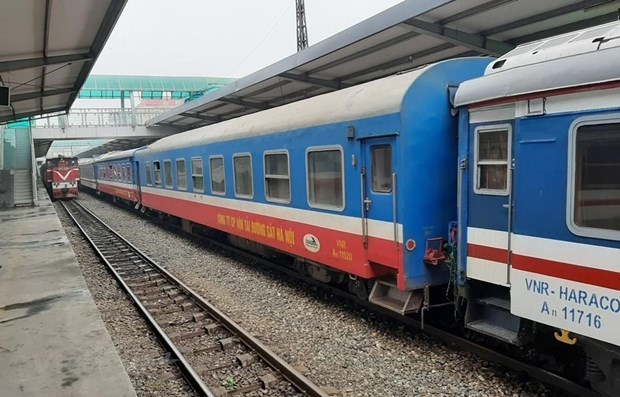 A train of the Vietnam Railway Corporation at the Hanoi Railway Station (Photo: VNA)
A train of the Vietnam Railway Corporation at the Hanoi Railway Station (Photo: VNA)Hanoi (VNS/VNA) - The Vietnam Railway Corporation (VNR) estimates a loss of nearly 1.4 trillion VND (60 million USD) after tax in 2020, a massive blow to the company due to impacts of the COVID-19 pandemic.
In the recent filing to the State Securities Commission on business results in the last three years, the corporation expected this year’s combined production and revenue will decrease by 23 percent compared to 2019.
Last year, the corporation posted a consolidated revenue of more than 8.3 trillion VND and pre-tax profit of 180 billion VND.
According to VNR, the loss is mainly due to the falling demand for transportation and travel as the result of the pandemic and the corporation’s re-adjustment of its operation to upgrade and repair the Hanoi – HCM City railway line.
Of the 1.4 trillion VND loss, 711 billion VND came from main railway business operation, of which two subsidiaries – Hanoi Railway Transport and Sai Gon Railway Transport – are expected to record a combined loss of 618 billion VND.
The parent company VNR estimates a loss of 168 billion VND.
Three subsidiaries in the mechanical industries and 20 railways joint stock companies are the only firms expecting profits of 75 billion VND.
Other burdens include financial losses from previous years, provisional expenses for contingency plans and bad debts worth a combined total of 682 billion VND. Also depreciation and amortisation expenses reached 59 billion VND this year but has no revenue to offset.
In terms of investment, apart from improving infrastructure, VNR plans to invest more than 602 billion VND in locomotive assemblies. The corporation also seeks to mobilise 414 billion VND from investors to carry out new carriage building project.
According to VNR Chairman Vu Anh Minh, the railway industry is facing fierce competition from other modes of transport, especially low-cost carriers in both air and road transport, while there is a lack of mechanisms and policies to boost railway development.
Last year was also a difficult year for VNR when all business indicators declined.
"The direct infrastructure and the train stations are owned by the Government, but there is no mechanism for enterprises to invest by themselves,” Minh was quoted by vietnamnet.vn.
“The State does not have capital, businesses have money but cannot spend to invest.”
He cited an example of Song Luy station in Binh Thuan province which needs about 30 billion VND to extend the railway lines and can generate an annual revenue of 200 billion VND but cannot be invested.
Nguyen Thi Phu Ha, Vice Chairwoman of the Committee for Management of State Capital, said the railway industry still relied heavily on ticket revenue while its management and competition is weak and infrastructure underdeveloped.
She has asked VNR to work with ministries and local authorities to submit to the Government a plan to improve competitiveness and reshape the sector’s development strategy in the future.
Due to the pandemic, the railway industry saw a decline in number of passengers but still had to maintain operations. Since February, about 3,000 workers have been furloughed or worked only on a shift basis. VNR has proposed the Government support its business with tax exemptions, fee reductions or by freezing debts.
In a move to revitalise the railway industry post-COVID-19, VNR is offering discounted prices and promotion programmes to stimulate domestic tourism, as well as focusing on more on freight transport.
It plans to operate more international freight trains with plans to transport fruits and aquatic products directly from southern provinces to China using refrigerated containers and onward to third countries such as Russia and others in Europe this year./.







